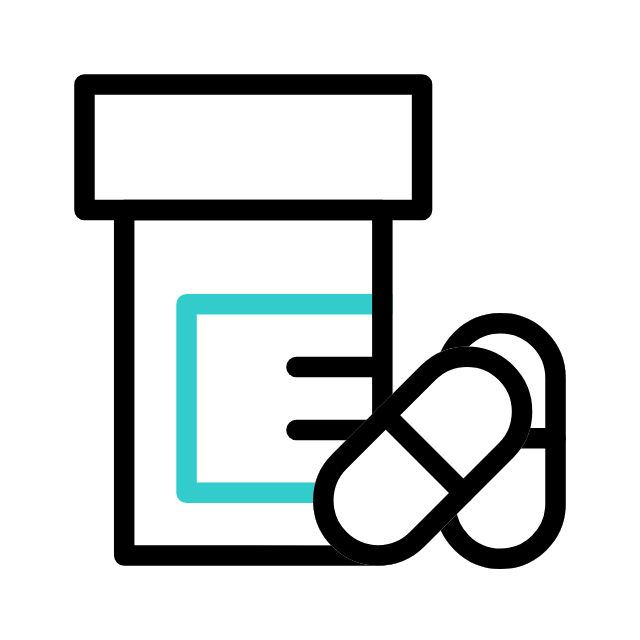Products
Mineral salts are fundamental components in pharmaceutical formulations, with versatile applications across various products. Calcium salts, such as Calcium Carbonate and Calcium Phosphate, are widely employed as excipients in tablet and capsule formulations, providing structural integrity and aiding in drug delivery. Magnesium compounds, including Magnesium Oxide and Magnesium Stearate, serve as lubricants and flow enhancers during the manufacturing process, ensuring smooth tablet production. Additionally, these magnesium salts find use as supplements to address dietary deficiencies. Potassium Phosphate, with its role in maintaining electrolyte balance, is integral to intravenous solutions and serves as a buffer in pharmaceutical formulations to regulate pH levels. Collectively, these mineral salts play crucial roles in enhancing the stability, bioavailability, and overall efficacy of diverse pharmaceutical products.
Iron is a nutrient that plays many important roles in your body, including keeping you healthy and full of energy.
Low iron levels are common, and they can cause unpleasant symptoms like tiredness, poor concentration, and frequent bouts of illness. However, iron deficiency is not always easy to spot, especially in its early stages.
Iron supplements are a great way to reverse a deficiency, especially if diet changes alone are unsuccessful (1Trusted Source).
| Calcium Salts | Grades | Compliances | Industry |
|---|
Calcium is an important mineral for the human body. It helps build and protect your teeth and bones. Getting enough calcium over your lifetime can help prevent osteoporosis, which is sometimes called “thin bones.”.
Most people get enough calcium in their normal diet. Dairy foods, leafy green vegetables, and calcium fortified foods have high levels of calcium. For example, 1 cup (237 ml) of milk or yogurt has 300 mg of calcium. Older women and men may need extra calcium to prevent them from getting (osteoporosis).
Your health care provider will tell you if you need to take extra calcium. The decision to take extra calcium should be based on balancing the benefits and risks of doing so.
| Sodium Salts | Grades | Compliances | Industry |
|---|
Sodium salts can be used as sodium source or as Antacid.
| Zinc Salts | Grades | Compliance | Industry |
|---|
Zinc is an essential trace element commonly found in red meat, poultry, and fish. It is necessary in small amounts for human health, growth, and sense of taste.
Zinc is found throughout the body. The body doesn’t store excess zinc, so it must be obtained from the diet. It’s needed for immune function, wound healing, blood clotting, thyroid function, and much more. It also plays a key role in maintaining vision and might have effects against viruses.
People commonly use zinc for zinc deficiency, diarrhea, and Wilson disease. Zinc is also used for acne, diabetes, anorexia, burns, and many other purposes. There is some scientific evidence to support its use for some of these conditions. But for most, there is no good scientific evidence to support its use. There is also no good evidence to support using zinc for COVID-19.
| Copper Salts | Grades | Compliances | Industry |
|---|
The body needs copper for normal growth and health. For patients who are unable to get enough copper in their regular diet or who have a need for more copper, copper supplements may be necessary. They are generally taken by mouth but some patients may have to receive them by injection. Copper is needed to help your body use iron. It is also important for nerve function, bone growth, and to help your body use sugar.
| Picolinates | Grades | Compliance | Industry |
|---|
The potential value and toxicity of chromium picolinate as a nutritional supplement, weight loss agent and muscle development agent.
| Magnesium Salts | Grades | Compliance | Industry |
|---|
Magnesium is a key factor in making several parts of the body run smoothly: the heart, bones, muscles, nerves, and others. Without enough magnesium, these areas malfunction. This is summarized in research, which finds that a magnesium deficiency or low magnesium diet leads to health problems. Although epidemiological studies show that higher magnesium diets are associated with lower rates of disease, results are mixed from clinical trials showing that magnesium supplementation can correct these conditions. It may be because a magnesium-rich diet is often higher in other nutrients, which collectively work together in disease prevention as opposed to a supplement containing a single nutrient.
| Manganese Salts | Grades | Compliance | Industry |
|---|
Manganese works in multiple ways in the human body. It is needed to maintain healthy bones, help with the immune system, boost metabolism, and control blood sugar levels. It’s also a common element in nature and is used as a catalyst in the chemical industry.
It is considered a “trace element,” which means the body needs it, but only small concentrations of this nutrient are enough to prevent a deficiency of manganese.
| Potassium Salts | Grades | Compliance | Industry |
|---|
Potassium is an essential mineral that is needed by all tissues in the body. It is sometimes referred to as an electrolyte because it carries a small electrical charge that activates various cell and nerve functions. Potassium is found naturally in many foods and as a supplement. Its main role in the body is to help maintain normal levels of fluid inside our cells. Sodium, its counterpart, maintains normal fluid levels outside of cells. Potassium also helps muscles to contract and supports normal blood pressure.
| Simethicone | Grades | Compliance | Industry |
|---|
| Others | Grades | Compliance | Industry |
|---|


